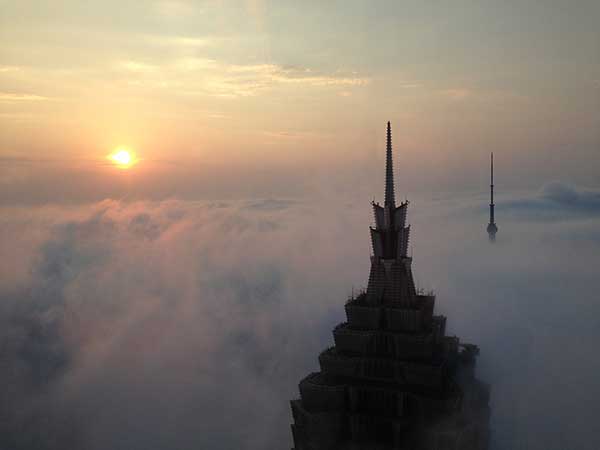HOPE’S DREAM
Cities have become so synonymous with evil and corruption, poverty and injustice that we tend to overlook the significance of the city in the Bible. The Scriptures often speak of the City of Zion or Jerusalem as a picture of God’s rule and his presence with his people.
In Isaiah 60:1-5 the prophet encourages God’s people that their time of darkness and despair, because they were in exile, would give way to a say of light and hope. God would establish his City – the City of Zion. He pictures the sun rising over Jerusalem – a sight that tourists today still marvel at as it lights up her walls and towers, the domes and roofs:
Arise, shine; for your light has come, and the glory of the Lord has risen upon you. For darkness shall cover the earth, and thick darkness the peoples; but the Lord will arise upon you, and his glory will appear over you. Nations shall come to your light, and kings to the brightness of your dawn. Lift up your eyes and look around; they all gather together, they come to you; your sons shall come from far away, and your daughters shall be carried on their nurses’ arms. Then you shall see and be radiant; your heart shall thrill and rejoice, because the abundance of the sea shall be brought to you, the wealth of the nations shall come to you (Isaiah 60:1-5).
Historically Isaiah’s words came true, for against all odds, the Jewish people returned to Jerusalem and rebuilt it. Cyrus the Mede, as Isaiah had indicated (Isaiah 45), conquered Babylon, and in 520 BC he decreed that the Jewish people could return to their homeland.
But Isaiah was not just pointing to the city of Jerusalem that was rebuilt after the exile. He was pointing to the time when God’s rule would come down to earth. God would bring in a whole new order, a new creation. The city of which Isaiah spoke was a picture of God’s kingdom and the glory of a new and lasting city where God himself would fill the city with the light of his presence.
LIGHT AND DARKNESS
The imagery of light and darkness is often used to portray God’s creating work. In Genesis 1 we read that thick darkness covered the earth, but God’s light overcame it. Here in Isaiah 60 darkness is a metaphor for moral evil and spiritual blindness. Light is a picture of God’s coming to rescue his people. In God’s new city there will be no need of a sun or a moon, for God’s glory will shine forever.
Furthermore, God’s light will shine worldwide: Nations shall come to your light (60:3), and kings to the brightness of your dawn. Those who refuse to turn to God will perish (60:12). It is one of the ironies of history that the power of Rome that crucified Jesus in the first century, capitulated to him in the fourth, when the emperor Constantine was baptized. It is striking proof that Isaiah’s words were no dream. The power of human kingdoms will fail and the kingdoms of the world will amass their wealth, only to lay it down again at the feet of the King of kings. It is an inspiring and encouraging picture.
How much more should it encourage us, for we live on the other side of the coming of God’s King, Jesus the Messiah. With his coming we see more clearly that God’s kingdom will succeed and that God’s royal City, the new Jerusalem, will be established in glory and greatness forever.
However, we need to be realistic: God’s city lies on the other side of a cosmic discontinuity. God will need to intervene through the return of his anointed King. Only then will God’s people be delivered from the tragic consequences of the present world.
What we need to remember is that what we do now has significance – for what we do in this world can change things. Indeed, what we do in the service of Christ in this world lasts. When we know that, we know why we work, why we try to serve the city. Each day it is worth praying, ‘Lord what good things have you for me to do today in building the City to come?’
God has a purpose for us all. We are moving towards the end of time, to a new and lasting City. Let’s embrace the words of a great prophet of ancient Israel when he says, Arise, shine; for your light has come, and the glory of the Lord has risen upon you.
You may like to consider:
1. the response of Isaiah’s first readers to the words of this chapter;
2. your response to Isaiah’s words when you feel that there’s no future for you;
3. how you can live a meaningful life now with the tension the hope of God’s new city before you and knowing that God has a purpose for you now.
Let me encourage you to pray:
© John G. Mason, The Anglican Connection

